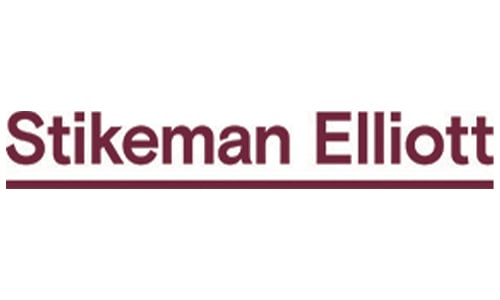Founded in 1988 by Academy Award-winning Canadian filmmaker Norman Jewison, the Canadian Film Centre is an icon of the art world. The charitable, cultural institution empowers home-grown talent and helps individuals thrive in the screen sector.
Sitting at this non-traditional employer’s legal helm is general counsel Jane Angel. Speaking to Lexpert, Angel says that her day-to-day role comprises delivering legal and strategic advice to the executive director and her senior management team, dealing with contractual commitments, managing licensing, distributing intellectual property, managing board relations and even corporate secretarial duties. And, looking at the challenges she faces from a legal perspective, artificial intelligence is up there – especially its impact on IP.
“AI is presenting a challenge to us as an organization that supports Canadian creators,” says Angel. “Part of the work that our residents do here is to create intellectual property of their own – some of which is used for promotional purposes, some of which is used for commercial purposes. At the moment, if we were to use AI-generated imagery in our licensed content, it could pose a problem for us because it’s not currently insurable. There’s no way to guarantee its originality.”
Angel is far from alone in her concerns about generative AI. Questions around authorship and originality continue to pester in-house teams, and court cases alleging the improper use of copyrighted material continue to rear their heads.
“At the moment, uncertainty about whether AI-generated imagery can be protected by copyright at all – if it's partially human-created or not at all – the jury is still out in Canada. So, we work very closely with our insurer. We believe in offering all of our residents and filmmakers the tools they need to do their jobs as efficiently as possible. This is certainly a new tool that I think people are very keen to explore, and I know there are some services that offer to indemnify their users, but until there's more certainty on the issue or until we have a path forward with our insurer, it's going to be assessed on a case by case basis with most uses… off limits at the moment for our filmmakers.”
But it’s not just AI that’s keeping legal professionals up at night. Cybersecurity is also a big concern. According to the Association of Corporate Counsel’s Chief Legal Officers Survey, 37 percent of CLOs list it as their top concern with 40 percent saying they plan on instituting new processes to help defend against these threats.
“I think every organization, large and small, is concerned about cyber security,” says Angel. “The Canadian Film Center, even though we're a small charitable arts organization, it's still an area of concern for us. We've created a risk management committee, which includes myself, and we meet regularly to review where we can do better.”
From here, Angel and the risk-management team have implemented a multifactor authentication system as well as rolling out some privacy safety training. “The education of everyone on our VPN is really important to us,” she says.
Another CFC priority is the issue of funding insecurity for the CFC and Canadian arts organizations in general. The CRTC just held hearings on The Online Streaming Act – "we participated in phase one of those hearings to argue for sustained, predictable funding in support of training for Canadian creators. We feel that that is also an industry specific challenge for us – to secure training for these programs.”
Looking ahead to the future challenges and questions in the creative legal space, Angel says that she’s focused on sustainability, risk-management, maintaining the insurability of CFC content by ensuring outputs don’t infringe copyright and always striving for efficiency.
“We've developed a bank of templates that both maintain our professional standard, protect the organization, but also allow for faster moving contracting process. As part of the efficiency initiative… we've actually automated that process, which was a big development for us. It makes things move way faster and also maintains the protections and standards for the organization. It also files the completed contracts in a fashion that everyone can access and is the same across the board. So that's been super helpful.”





